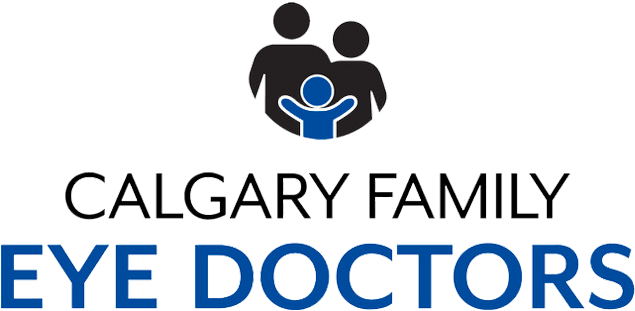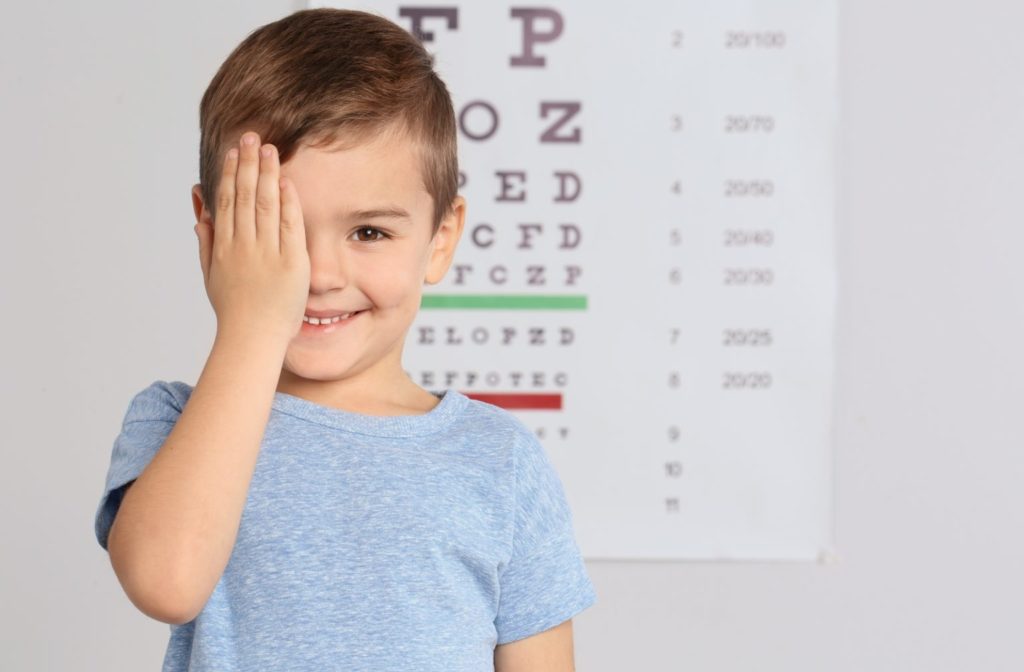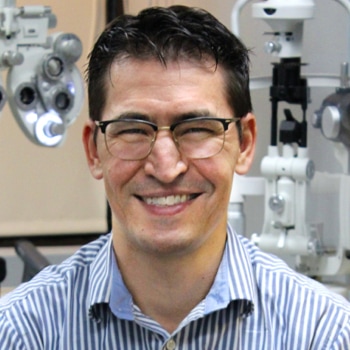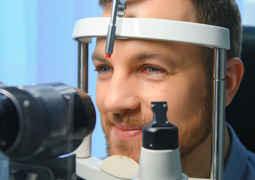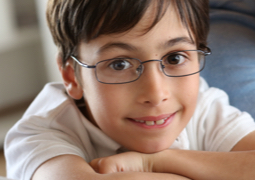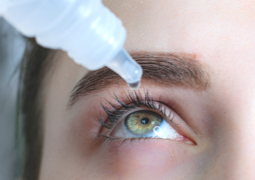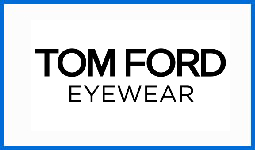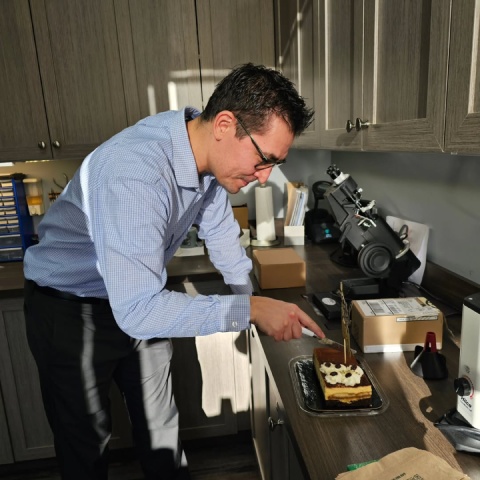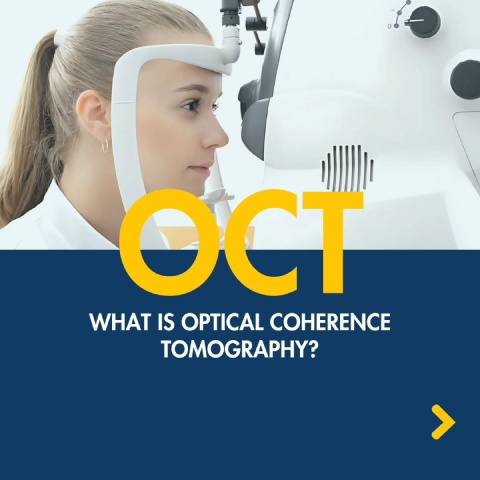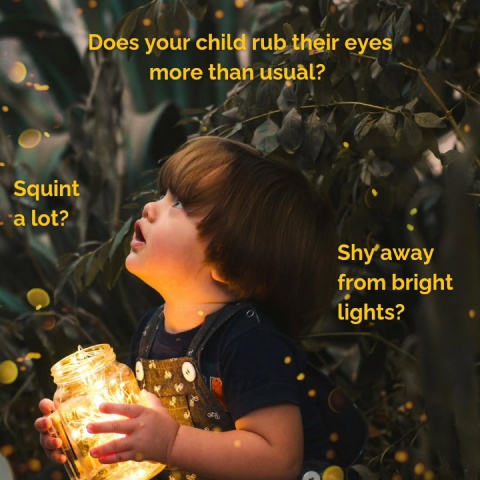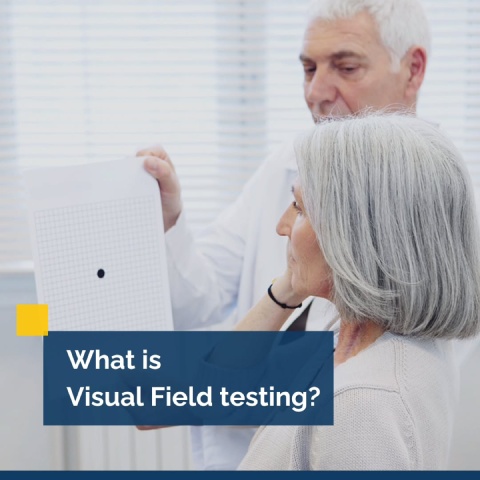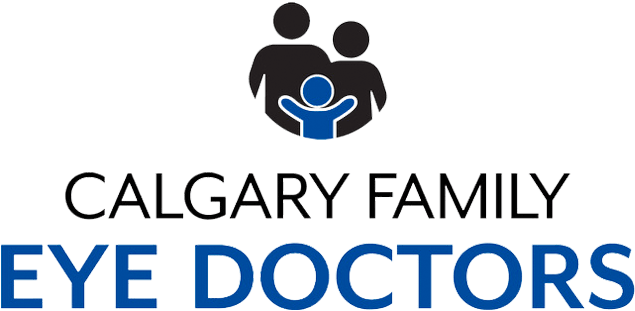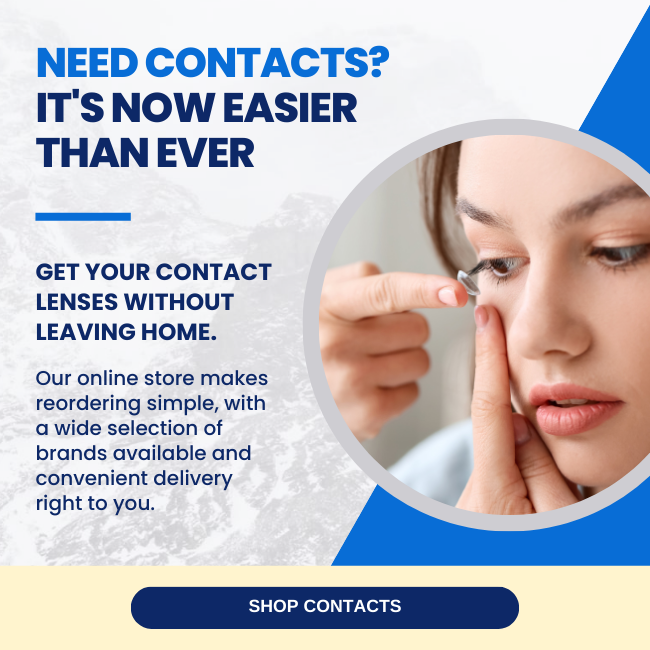Healthy Vision for Our Little Ones
We all want our children to be happy and successful in their endeavours, and healthy vision can play a massive part in a child’s overall wellness. Our kids grow up fast, and their eyes develop right alongside them. How can you tell if they’re hitting the correct visual milestones?
As a parent, you may be wondering how to determine if your child needs glasses. It can be challenging to determine if your child is experiencing vision problems, especially if they are younger and unable to communicate what they see.
We’ve compiled a list of common indicators for children with vision problems, but of course, the best solution is a consultation with your optometrist at your child’s routine eye exam.
Why Children Wear Glasses
There are several reasons that a young child may need glasses. Your child’s vision centre is constantly growing and changing, and a pair of eyeglasses can play an essential part in ensuring proper visual development.
Vision correction is a crucial component for our child’s lenses, but improving vision is not the only benefit of wearing glasses!
Glasses can also help by:
- Strengthening and protecting vision in a weak eye
- Helping to correct an amblyopic (lazy) eye
- Improving the position of crossed or misaligned eyes
Signs Your Child May Need Glasses
Your optometrist is the best resource to help you determine if your child needs glasses, but parents can watch for signs that may indicate their child is experiencing vision problems:
- Squinting: If your child squints frequently, it could be due to a refractive error. Refractive errors affect how well the eyes can focus on an object or image.
- Frequently tilts head or covers one eye: Your child may be attempting to adjust their vision angle to make what they are looking at appear clearer. This behaviour can be indicative of amblyopia (lazy eye).
- Objects must be in close range for optimal viewing: If your child holds reading material close to the face, needs to sit in the front of the classroom, close to the television, or holds their hand-held devices too close to the eyes, it can be an indicator of a vision problem like myopia (nearsightedness).
- Excessive eye rubbing or blinking: Eye rubbing and blinking indicates that eyes are fatigued or strained.
- Complaints of eye pain: Eye strain can result in sore, irritated eyes
- Frequent headaches: Frequent headaches can be indicative of eye strain.
- Short attention span: Vision problems can appear as a lack of focus.
- Avoids reading: If your child frequently loses their place when reading, has difficulty remembering what they read, or avoids reading altogether, it can signify vision problems.
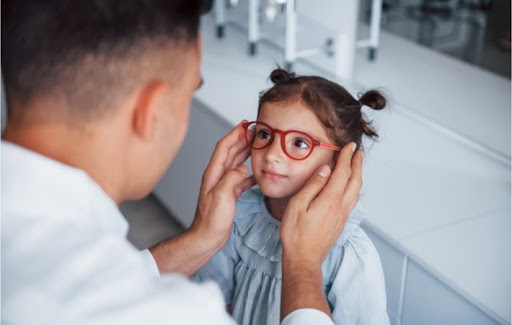
The Importance of Routine Eye Care
There are several critical milestones to achieve on the road to healthy vision, and every child should develop the following visual skills to help them achieve success in reading and learning:
- Visual acuity: The ability to see clearly at various distances.
- Focusing: Maintaining clear vision when looking at different objects at varying degrees of distance.
- Tracking: The eyes’ ability to follow a target.
- Teamwork: When the eyes coordinate to judge distances and see depth.
- Hand-eye coordination: Using visual information to direct hand movements.
At Calgary Family Eye Doctors, we recommend that our young patients have comprehensive eye exams at every developmental stage, specifically the infant, preschool, and school years.
At a routine eye exam, the optometrist will assess the clarity and sharpness of your child’s vision, and a variety of conditions, like:
- Strabismus (crossed eyes)
- Issues with depth perception
- The overall health of your child’s eyes
- Indicators of eye disease
If the optometrist determines that your child will benefit from eyeglasses, they will take time to discuss details of the prescription and answer any questions you may have about their vision.
The School Years
Although healthy eyesight is vital at every age, from infant to senior, it’s particularly imperative to focus on correcting vision problems for our school-aged children. Eyeglasses can be an essential resource when it comes to ensuring academic success and happiness at school.
Undiagnosed vision issues can significantly impact your child’s love of learning. Being unable to clearly see what’s happening in the classroom, struggling with reading and focusing on desk work can be a very frustrating experience!
Vision problems in school-aged children often share the same symptoms as Attention Deficit Hyperactivity Disorder (ADHD). Routine eye exams and a pair of glasses may help avoid a misdiagnosis, reducing stress and fatigue for your child.
Keep Their Eyes Smiling
If you think your child may need glasses, consult with your optometrist right away. Comprehensive eye exams on a recommended schedule are the best defence against vision problems, and can help confirm that your child’s eyesight is developing at the best pace.
Calgary Family Eye Doctors is a compassionate and experienced practice. We’re always available if you have questions about your child’s vision, or if you would like to book them a comprehensive eye exam.
See you soon!
